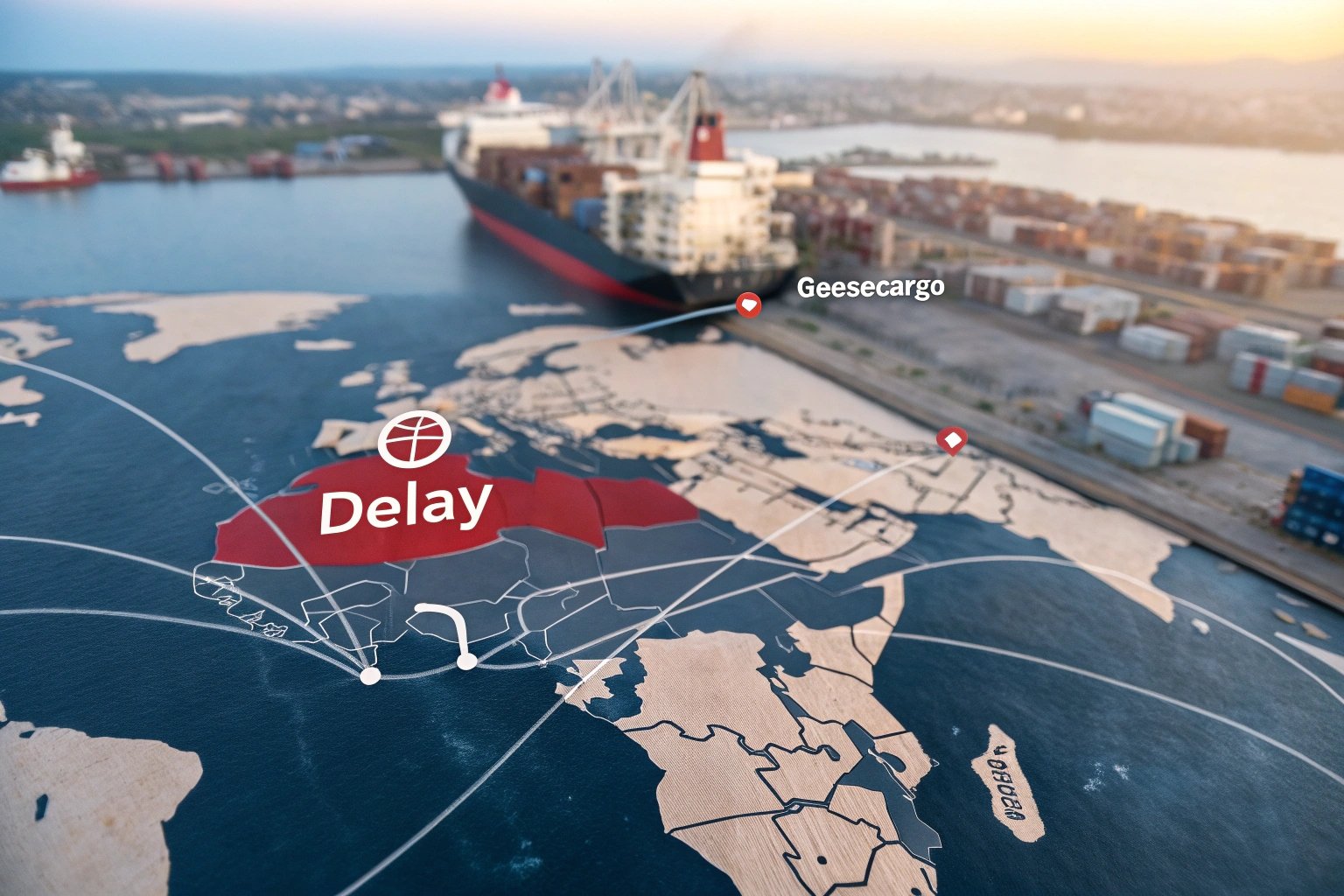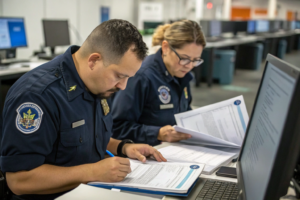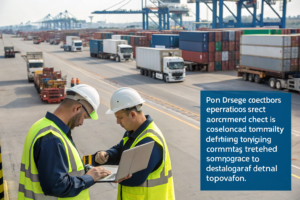International shipping delays can paralyze your supply chain. A single setback can ripple across your entire business.
To avoid delays in international freight shipping, importers must identify common causes, ensure accurate documentation, book early to secure capacity, and partner with proactive freight forwarders. Planning and communication are key to smooth delivery.
At GeeseCargo, we help clients avoid costly disruptions by managing risks before they become problems. Let me show you how we do it.
Common causes of international shipping delays
Freight doesn’t just get delayed randomly—there are patterns and repeat offenders.
Most international freight delays are caused by port congestion, inaccurate documents, missed vessel cutoffs, poor packaging, and customs clearance issues. Knowing the causes helps you prevent them.
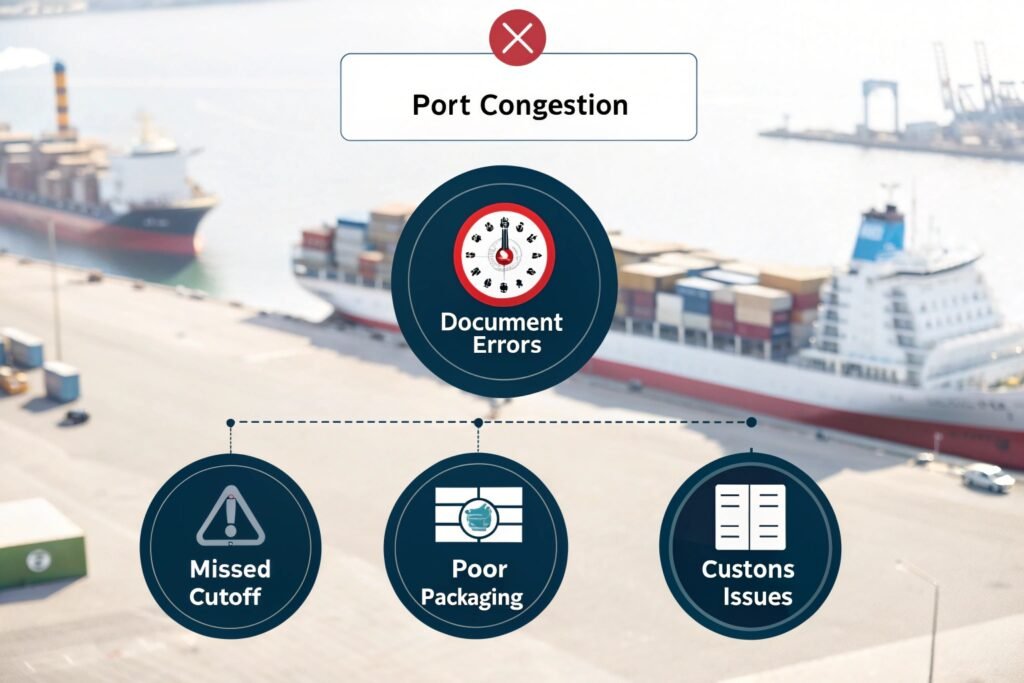
What issues commonly trigger shipping delays?
Let’s break it down:
| Delay Factor | Description | Risk Level |
|---|---|---|
| Port congestion | Backlog of containers, long unloading times | High |
| Customs document issues | Missing or incorrect paperwork | High |
| Last-minute booking | No space on vessel or flight | Medium |
| Incorrect packaging or labels | Causes rejections or inspections | Medium |
| Weather or strikes | Unpredictable but impactful | Low–High |
I once had a client shipping electronics from Shenzhen. Their cargo sat at port for 6 days because of a typo in the product HS code. One small error cost them a retail contract.
How can you spot a potential delay early?
- Track carrier updates closely
- Double-check every document field
- Watch for red flags in booking confirmations
- Use digital tools to monitor shipment status
At GeeseCargo, we track all these signals and alert our clients before the delay hits.
Importance of accurate documentation and labeling
Customs won’t clear your cargo if your paperwork doesn’t match what’s in the box.
Accurate shipping documents and proper labeling prevent customs rejections, reduce inspections, and speed up international freight clearance.
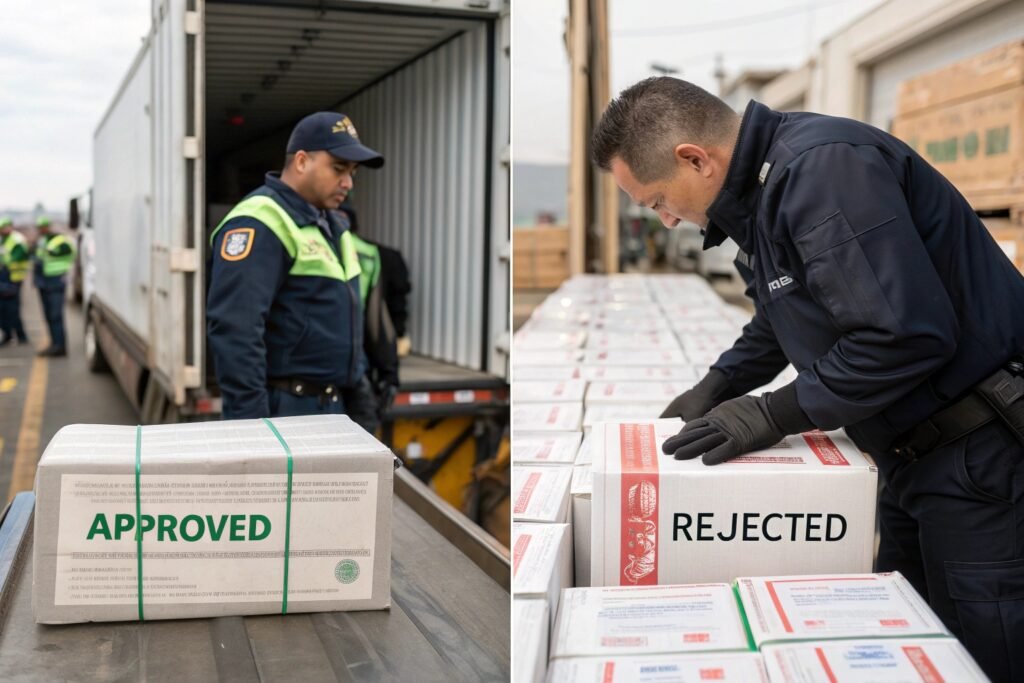
What documents must be 100% correct?
- Commercial invoice: Value, quantity, description, currency
- Packing list: Box numbers, weight, volume
- Bill of Lading or Air Waybill: Consignee, shipper, cargo type
- HS Codes: Must match product exactly
- Certificates: Origin, fumigation, MSDS if required
Labeling errors that cause major headaches
- Wrong consignee info
- Missing country of origin
- No handling instructions (fragile, upright, etc.)
- Fuzzy or misprinted barcodes
One apparel importer failed to label boxes with “100% Cotton - Made in China.” Customs held the cargo for physical inspection. We helped reprint compliant labels, but 2 days were lost.
| Label Requirement | Why It Matters |
|---|---|
| Country of origin | Required for customs and duties |
| Product category | Needed for correct HS classification |
| Handling instructions | Avoid damage during transport |
| Barcode + SKU | Smooth warehouse intake |
At GeeseCargo, we offer pre-check services to verify every document and label. It’s cheaper to double-check than to fix at the port.
How early booking helps prevent port congestion
Space is limited. Carriers give it to those who plan ahead.
Booking early helps you avoid peak congestion, secure space during high demand, and reduce the risk of rollovers or schedule changes.
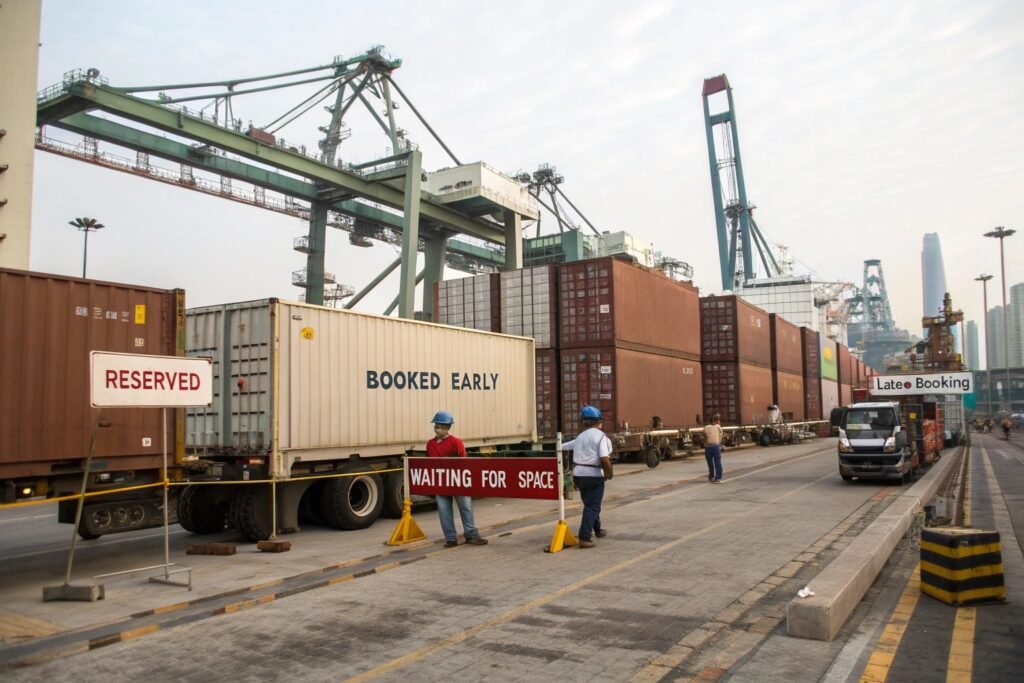
Why is early booking so important?
Especially during:
- Peak seasons (e.g., back-to-school, holidays)
- Before Chinese New Year or Golden Week
- COVID-like disruptions and port slowdowns
Carriers overbook ships. If you book late, your container might get bumped. This happened to one of our U.S. clients during Q4—losing their Black Friday inventory.
| Booking Timeframe | Risk Level | Carrier Flexibility |
|---|---|---|
| 3–4 weeks in advance | Low risk | High flexibility |
| 1–2 weeks in advance | Medium risk | Limited space |
| Less than 1 week | High risk | Very low, surcharge likely |
What happens when space runs out?
- Rollovers to next week
- Emergency bookings at 2–3x cost
- Missed delivery windows
At GeeseCargo, we reserve space ahead of time for regular lanes like Shenzhen–LA and Ningbo–Rotterdam. We notify clients about booking windows and cutoff dates every week.
Planning early protects your profits.
Role of freight forwarders in delay prevention
The best forwarders don’t just move boxes. We prevent headaches.
Freight forwarders reduce delays by coordinating bookings, managing documents, advising on compliance, and reacting fast when problems arise. We’re your eyes on the ground.
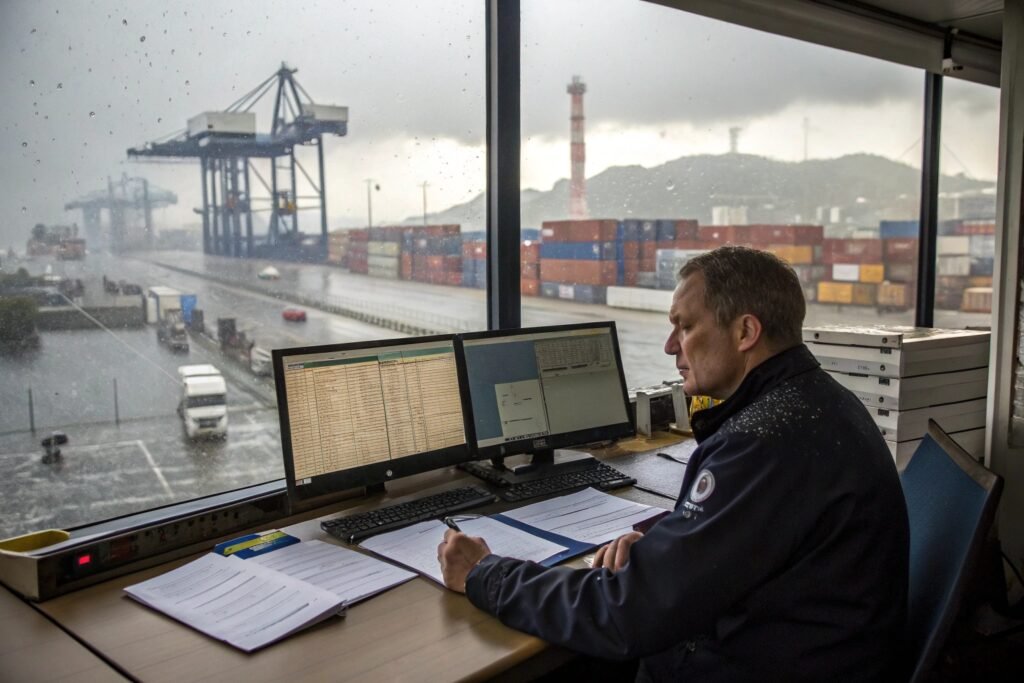
What exactly do we do to prevent delays?
- Review all shipping documents for compliance
- Monitor vessel schedules and carrier space
- Suggest alternate ports or routes when needed
- Book customs clearance ahead of arrival
- Track containers and notify of any exceptions
For example, when Shanghai faced a typhoon delay, we rerouted 3 containers through Xiamen and avoided a full week of delay for one of our U.S. lighting clients.
| Forwarder Task | Delay Risk Prevented |
|---|---|
| Document review | Customs rejections, inspections |
| Early booking | Rollover risk, space shortage |
| Live tracking | Late notification of issues |
| Alternate routing | Port congestion delays |
How GeeseCargo keeps our clients informed
- Shared spreadsheets of sailing schedules
- Booking reminders with carrier deadlines
- WhatsApp or WeChat updates for real-time issues
- On-call support during clearance hours
We don’t wait for problems to call us. We call you first.
Conclusion
Avoiding delays in international freight means planning ahead, checking every detail, and working with a forwarder who watches every step. At GeeseCargo, we believe shipping should be smooth, not stressful—and we make sure it stays that way.
